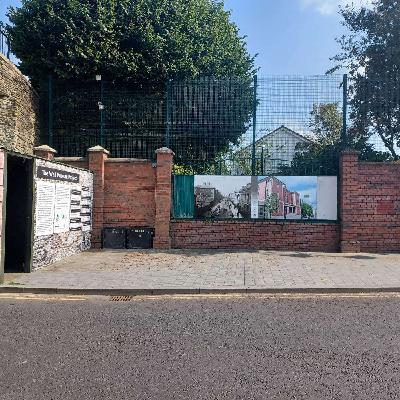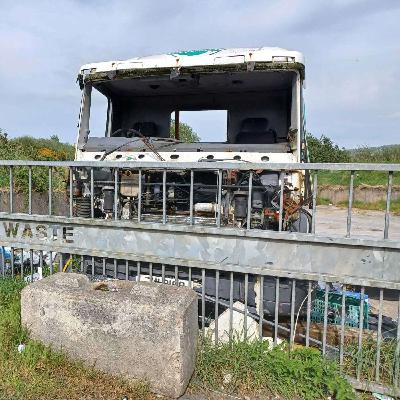Where is the Peace Dividend?
Description
A few days ago the Northern Ireland Affairs Committee of the House of Commons was told that for some communities here, the expected peace dividend from the Good Friday Agreement never arrived.
Tim Attwood of the John and Pat Hume Foundation reported on its recent ‘Peace Summit’. “One of the young people said, ‘The conflict was not the problem; the peace is’, because, in so many places, they do not see the dividend. Some working-class people in parts of Belfast or Derry do not see the dividend. Where are the jobs? Where is the investment that gives them the hope for the future?”
A couple of years ago, the Derry University Group – lobbyists for university expansion in the city – published research from accountant Cormac Duffy which concluded that, in real terms, while the Belfast economy grew by 14% since the Good Friday Agreement, Derry’s economy contracted by 7%. Those figures are rejected, both by the independent FactCheckNI and by Derry City and Strabane District Council. Yet the conclusions resonated in Derry, where there is resentment and a feeling of being left behind.
Duffy’s conclusion was based on comparing Gross Value Added in the two cities. But, as the author himself recognised, those statistics are distorted by the commuting nature of the Belfast economy, with many of the best paying jobs in the capital taken by people who live in Lisburn, Bangor and elsewhere.
The unemployment rate provides an alternative measure of progress. At the time of the Good Friday Agreement, the unemployment rate in the Foyle constituency was 15.2% and the male unemployment rate 20.7%. This was the 7th worst in the UK, behind Belfast West and several deprived areas of England. Today the claimant count rate in Foyle is 5.6% and 6.9% for men.
The UK rate in 1998 was 6.3%, today it is 3.9%. In 1998, the Foyle rate was around 9% higher than that of the UK average. Today it is 1.7% higher. So measured by official unemployment rates, Derry has gained a peace dividend.
Yet, Derry continues to lag behind the rest of the UK in employment rate and wealth generation. While the UK had an employment rate of 75% at the end of 2021, it was just 65% in the Derry and Strabane council area. And the levels of deprivation in the city (as in parts of Belfast) continue to be disgraceful, 25 years on from a peace accord that might have been expected to resolve most of our society’s challenges.
Some 38% of the population in Derry and Strabane are classed as income deprived, compared to the NI figure of 25%. Pay in Derry and Strabane is 9% below the NI median, while disposable income per head is 11% below the NI average. More positively, the council points to official statistics indicating that both Derry and Belfast have been catching up with the rest of the UK in terms of median pay, and also that Derry has been catching up with Belfast.
But official statistics also reveal that more than half of children growing up in Derry and Strabane live in areas classed as deprived. While 42% of children in Derry are eligible for free school meals, this compares to 28% across NI as a whole and 22.5% in England. This is an astonishing disparity.
It is the lack of progress in narrowing Derry’s poverty gap with the rest of the UK that has caused many people to argue that there has not been a sufficient peace dividend for Derry – with some communities almost untouched by economic improvement.
A presentation last week in Derry by John Daly, senior economist at the Northern and Western Regional Assembly, both spelled out the dire situation in Derry and Donegal, while also suggesting a solution. Daly argued this requires expanding university provision in Derry; capitalising on the opportunities presented by the new Atlantic Technological University across the border; increasing the focus on the high technology research produced by the two institutions; and exploring how to develop regional structures.
The latest Holywell Trust Conversations podcast discusses the weakness of the peace dividend for Derry – and the rest of NI – with Dr Ciara Fitzpatrick of Ulster University; Garbhan Downey of the Derry University Group; and Tim Attwood, chief executive of the John and Pat Hume Foundation.
* A report on the ‘Peace Summit’ – ‘The Unfinished Business of Peace and Reconciliation – A Call to Action’ – has been published. The Holywell Trust is a partner organisation.
Disclaimer: This project has received support from the Northern Ireland Community Relations Council which aims to promote a pluralist society characterised by equity, respect for diversity, and recognition of interdependence. The views expressed do not necessarily reflect those of the Community Relations Council.





















